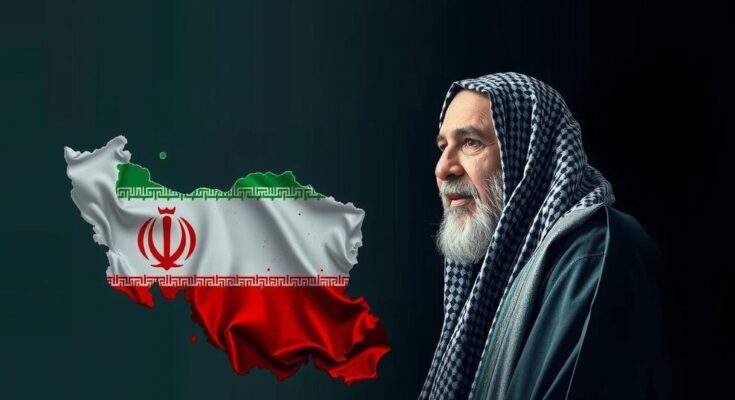The death of Yahya Sinwar has significantly destabilized the Iranian regime, representing the end of a key figure in its strategy against Israel. His leadership in Hamas was marked by brutality and destruction, causing suffering among Palestinians. The parallels drawn between his demise and the fall of the Nazi regime serve as a cautionary tale about the inevitable collapse of tyrannies.
Yahya Sinwar’s death has significantly unsettled the Iranian regime, marking the loss of one of the last prominent figures within the axis of resistance. Groomed by Iran for the purpose of orchestrating extensive assaults on Israel, Sinwar was critical to the “Unity of Fronts” strategy targeting the perceived enemy, designated as the “Little Satan.” His fatal encounter in Gaza epitomizes the metaphorical collapse of tyrannical regimes, reminiscent of the downfall of Nazi leadership amid the ruins of Berlin. As a notable ally of Qasem Soleimani and his successor, Esmail Qaani, Sinwar was elevated to lead Hamas following the killing of Ismail Haniyeh, a maneuver aimed at exacerbating the conflict in Gaza and imposing severe repercussions on Israel. Regrettably for his backers, his tenure was abruptly terminated. On October 16, Sinwar was observed by Israeli Defense Forces (IDF) members alongside two other Hamas operatives, navigating through Rafah. Following an altercation with IDF troops, he sustained injuries that led to his death, with his body recovered the following day. After an initial period of silence, representatives of the Iranian regime proclaimed Sinwar a martyr, proudly opposing the Israeli forces. Ayatollah Ali Khamenei hailed him as “the shining face of resistance,” with President Masoud Pezeshkian referring to him as a “tireless fighter who fought heroically until his last moment.” Contrary to these declarations, evidence surrounding Sinwar’s demise paints a disparate picture. He was not a heroic figure; rather, he was seen fleeing between structures in Tel Sultan, seemingly searching for escape and safety through a tunnel. His DNA was discovered nearby, corroborating his swift retreat. A drone image captured his last moments, depicting a wounded and bandaged man seeking cover, throwing objects at a drone in desperation. Sinwar was the orchestrator behind a heinous massacre that claimed the lives of over 1,200 Israeli civilians on October 7. His methods were notably cruel, earning him the moniker of “the butcher of Khan Yunis,” a label that resonates even today among Gazans. He enforced brutal discipline within Hamas, exemplified by his act of compelling a member to bury their brother alive on mere suspicion of betrayal. Under his leadership, Gaza experienced substantial hardship, deepening poverty and suffering among Palestinians. His demise elicited relief among parts of the Gaza population, weary from the relentless cycle of violence and destruction. The parallels between Sinwar’s death and the fall of the Nazi regime provide a poignant reflection on the futility of tyrannical governance and the inevitable disintegration of oppressive political structures. Iranian supporters of Hamas may soon confront the stark realities reflected in the historical collapse of the Nazi empire, a reminder of the catastrophic consequences born from violence and extremism.
The article discusses the implications of Yahya Sinwar’s death for the Iranian regime and its support of Hamas. Sinwar was a key figure in orchestrating attacks against Israel, firmly embedded in the strategy of the axis of resistance backed by Iran. The narrative draws historical parallels between Sinwar’s demise in Gaza and the downfall of Nazi leaders during World War II, highlighting themes of tyranny, violence, and the ultimate consequences faced by oppressive regimes.
In conclusion, Yahya Sinwar’s death not only represents a significant blow to Hamas and its Iranian backers but also serves as a broader metaphor for the collapse of tyrannies built on violence and oppression. His legacy of brutality and the relief felt by segments of the Gazan population underscore the destructive impacts of such leadership, while simultaneously reflecting on historical lessons regarding resistance and power.
Original Source: www.jpost.com




